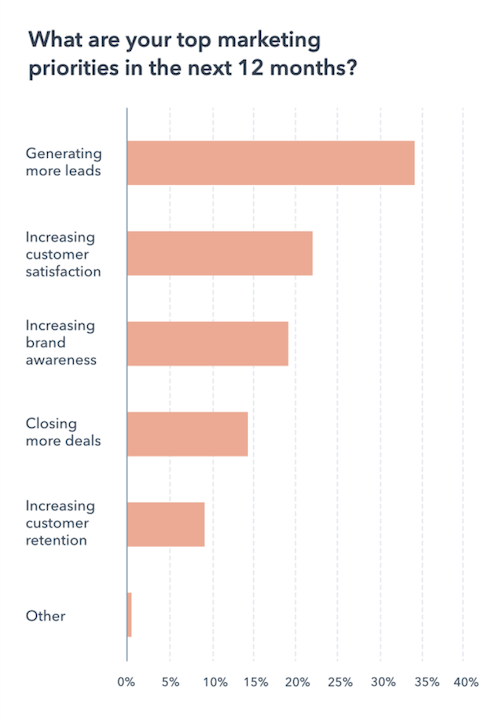Revenue Marketing: What It is and Why It Matters

91% of marketers are confident that their making marketing decisions will positively impact revenue. Are you one of them?
As marketers, we’re well-versed in the main goals of internet marketing: to generate leads and new business. Revenue generated from online marketing justifies why we include online channels in our marketing efforts.
How then, do marketers come up with a winning online marketing strategy that directly ties to their revenue goals?
If you’re unsure of the answer, we’ve got you covered. In this article, we’ve outlined the steps that you can take to plan successful revenue marketing campaigns.
Let’s explain revenue marketing a little bit more.
If you were to implement a revenue marketing plan, you would look at your revenue goals first instead of your business goals. For example, if the business has a goal to attract 10,000 new customers, but the revenue goal is to make $150,000 more than last quarter, a revenue campaign would strategize all the ways the team could generate $150,000 — ideally from 10,000 (or more) new customers.
Benefits of Revenue Marketing
Marketing efforts are typically broken down into four broad categories: Traditional marketing, lead generation, demand generation, and revenue marketing.
Many companies move through marketing efforts in this order. Traditional marketing comes first and includes a focus on building your brand — generating name and product recognition in the hope of driving sales later on.
Lead generation comes next. Here, marketing teams look to pinpoint high-value leads that are likely to take action and drive sales. Demand generation follows, and sees marketing and sales teams working in tandem to create multi-channel campaigns that bring interested B2C and B2B buyers to your site or sales platform.
Revenue marketing looks to scale up lead and demand generation processes by tying them to specific metrics and making them both reliable and repeatable. Effectively implemented, revenue marketing offers three key benefits.
Increased Customer Focus
Traditional marketing efforts are all about finding ways to boost demand by making products or services more appealing at scale. Revenue marketing flips the script to focus on what customers want.
What do customers want from the product? What would make them likely to buy more? Buy less? What non-product areas — such as speed of customer service response or the ability to easily navigate websites — have an impact on the likelihood of conversion? By focusing on the cultivation of long-term customer relationships, revenue marketing can help drive sustained sales.
Enhanced Team Alignment
Marketing and sales teams are often at odds. Where marketers look to positively raise brand profiles at large, sales teams are more concerned with the specifics of individual conversions. As a result, efforts from these two teams may work in opposition rather than tandem, in turn frustrating both outcomes.
Revenue marketing, meanwhile, helps put these teams on the same page with a singular focus: The customer. By getting everyone on board up-front — from sales and marketing team members to C-suite sponsors and even IT if …read more
Source:: HubSpot Blog










